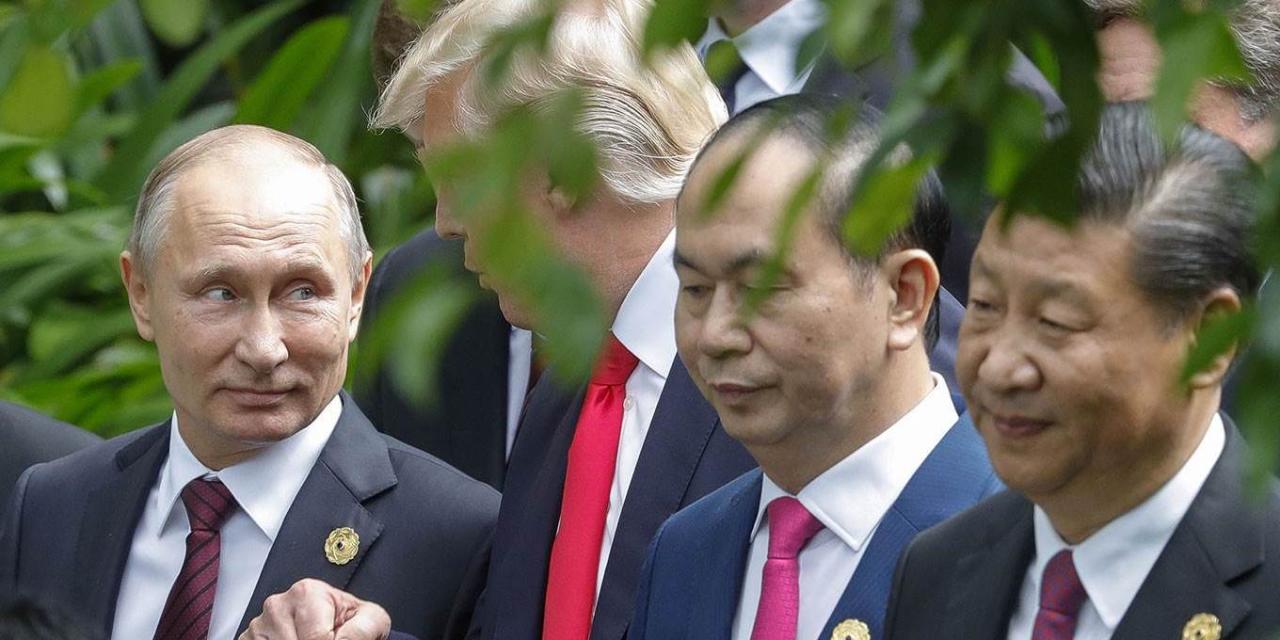The Trump factor and US foreign policy

By Joschka Fischer
In the first year of Donald Trump’s presidency, the damage wrought by his administration’s foreign policy fell well short of what had been feared.
Despite his thundering rhetoric and tweets dubbing North Korean dictator Kim Jong-un “little rocket man,” the new US president did not start any wars, whether on the Korean Peninsula or in the South China Sea. There was no conflict over Taiwan, either, following Trump’s questioning of America’s longstanding “one China” policy.
In fact, rather than clashing with China, Trump seems to have forged a close personal relationship with Chinese President Xi Jinping. China’s leaders could hardly believe their luck when one of Trump’s first official acts was to withdraw the United States from the Trans-Pacific Partnership (TPP), which would have excluded China and shored up Western trade rules in the Asia-Pacific region. It was as if Trump wanted to make China, not America, great again.
Moreover, Trump did not start a trade war by imposing high tariffs on imports from major US trade partners such as China, Germany, and Japan. Despite his refusal to recertify the Iran nuclear deal, it remains in place. And the long-term consequences of his unilateral decision to recognize Jerusalem as Israel’s capital remain to be seen.
Trump’s hope of cooperating more closely with Russia at the expense of US allies also went unrealized, and the official US position in the Ukrainian conflict has not changed. Of course, that is largely due to Russian President Vladimir Putin’s decision to interfere in the 2016 US presidential election, which has made it impossible for Trump to reorient America’s Russia policy without triggering a domestic political firestorm.
Similarly, despite having been deemed “obsolete” by Trump, NATO has actually gained strength and legitimacy during the past year, owing to Russia’s military buildup and continued war in Eastern Ukraine. To be sure, Europeans will have to see to their own defense more than in the past. But that would have been no different under a Hillary Clinton presidency (though the message would have been couched in friendlier terms).
All told, the White House “adults in uniform” – Secretary of Defense James Mattis, National Security Adviser H. R. McMaster, and Chief of Staff John Kelly – have ensured continuity in US foreign policy. And the same seems to be true for economic and trade policy.
Does that mean the world can rest easy? Of course not. There is still a big question mark hovering over US foreign policy in the form of Trump himself. It is entirely unclear what the president wants, what he actually knows, and what his advisers are and are not telling him. A coherent foreign policy may not withstand Trump’s mood swings and spontaneous decisions.
Making matters worse, the administration’s shrinking of the US State Department has weakened the institutional base for implementing official foreign policy to an almost mission-critical degree. And the White House’s recently published National Security Strategy is no more reassuring. In a departure from America’s official position since September 11, 2001, the US will now view its global power rivalry with China and Russia, rather than terrorism by non-state actors, as the primary threat to national security and world peace.
So, looking back at 2017, one gets the impression that while US foreign policy remained largely intact, it has also become completely unpredictable. To that extent, 2018 seems likely to be a year of substantially increased risks, especially given the tensions in the Persian Gulf and Lebanon, the war in Syria, the hegemonic struggle between Saudi Arabia and Iran, and the nuclear brinkmanship on the Korean Peninsula.
On the Korean Peninsula and in the Persian Gulf, the central aim must be to prevent the nuclear armament of dictatorships that threaten regional stability and the prevailing balance of power. As matters stand, the risk of a military confrontation with either North Korea or Iran cannot be discounted.
In the case of North Korea, which is quickly working toward an intercontinental ballistic missile capable of reaching the mainland US, such a conflict could even entail the use of nuclear weapons. Nothing about this situation inspires optimism, especially now that the US is led by a president whom few can trust, and whose policies must be divined from the muddle of his tweets.
In fact, the Trump factor could be the single most significant source of uncertainty in international politics this year. The US is still the world’s foremost power, and it plays an indispensable role in preserving global norms. If America’s policies are difficult to predict, and if Trump’s behavior undermines the reliability of the US government, the international order will be vulnerable to immense turmoil.
As the US approaches its midterm elections in November, it will be important to consider how domestic political events might shape the country’s foreign policy. If the Republicans lose their majorities in either or both houses of Congress, and if Robert Mueller, the Special Counsel in the Russia investigation, presents his findings around the same time, then Trump will feel his power quickly eroding.
The critical question for 2018, then, is what Trump will do if he finds himself threatened domestically at the same time that a foreign-policy crisis erupts. Will the “adults in the room” still be able to handle their charge? One need not be a doomsayer to regard the coming months with considerable skepticism and concern.
Copyright: Project Syndicate: The Trump factor and US foreign policy
---
Follow us on Twitter @AzerNewsAz
